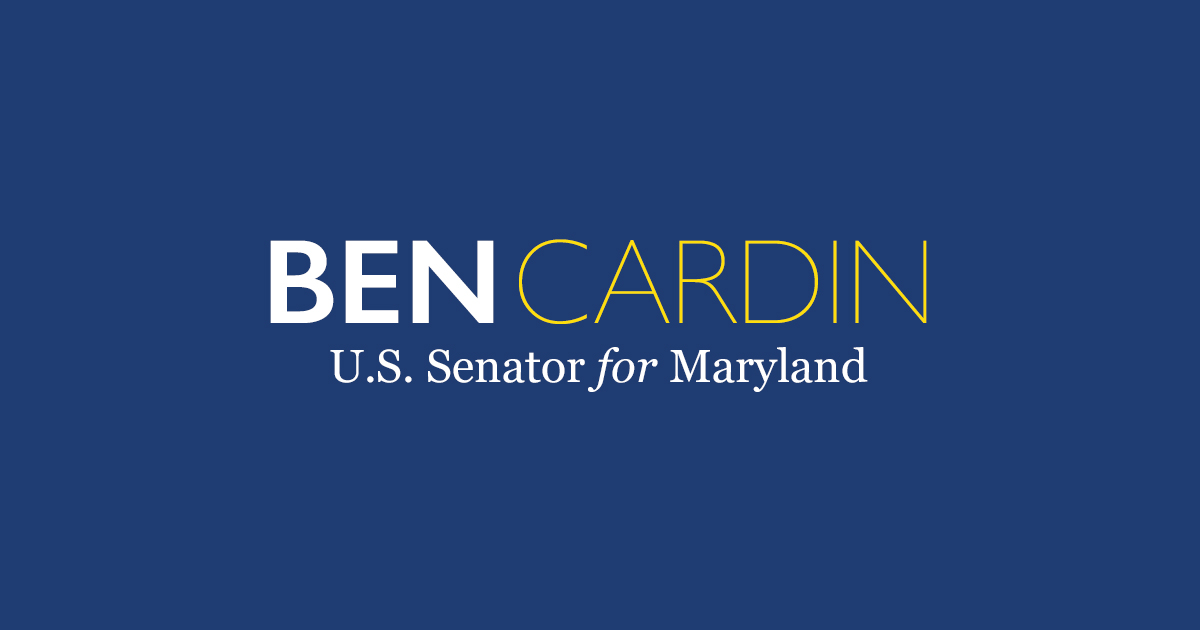Source: United States Senator for Maryland Ben Cardin
September 14, 2021
Build Back Better Budget Would Invest $25 Billion in American Small Businesses Call Comes During National Small Business Week
WASHINGTON — As the nation celebrates the resilience and renewal of American small businesses during National Small Business Week, U.S. Senate Committee on Small Business & Entrepreneurship Chair Ben Cardin (D-Md.), House Small Business Committee Chairwoman Nydia M. Velázquez (D-N.Y.), and House Small Business Committee Vice-Chair Kweisi Mfume (D-Md.) hosted a press call today urging swift passage of the bipartisan Infrastructure Investment and Jobs Act and the Build Back Better Budget—the final pieces of President Joe Biden’s Build Back Better Agenda.
Also on the call were Small Business for America’s Future Senior Advisor Rhett Buttle and small business owner Laurie Sayles, President and CEO of Civility Management Solutions, a small government contractor headquartered in Greenbelt, Md.
“This year’s National Small Business Week theme of ‘resilience and renewal,’ reflects the ingenuity displayed by small businesses during the pandemic, as well as the once-in-a-generation opportunity Congress now has to reshape our economy,” Chair Cardin said. “The Federal Government must meet small business owners where they are with affordable loan options and federal contracting and mentorship opportunities. This is exactly what the Build Back Better Agenda will do. Congress must pass these bills as quickly as possible so we can begin rebuilding our crumbling infrastructure and further invest in our small businesses to create jobs and ensure that our economic recovery reaches every community in America.”
“Ultimately our economic recovery relies on the well-being of American small businesses. So, if we want to build our economy back to pre-pandemic levels and set the stage for future growth, we need a massive investment in American entrepreneurs,” said Chairwoman Velázquez. “That’s exactly what the Build Back Better act delivers. Our package delivers long-term solutions to perennial small business challenges and will provide small firms with the support they need to recover now and thrive in the future.”
“Small business is America’s business. I am encouraged by the support we have in Congress for the Build Back Better Act and the Infrastructure Bill,” said Congressman Kweisi Mfume. “These two bills together will have a transformative effect on communities across America, especially in Maryland. I am ready to pass them now.”
“In addition to many of the critical access to capital provisions in this bill, survey research by Small Business for America’s Future shows that 8 in 10 of small business owners support investments included in the Build Back Better Agenda like leveling the playing field on taxes, investing in paid leave and child care, as well as lowering healthcare costs,” Buttle said. “As we celebrate National Small Business Week, let’s keep our focus on this once in a generation investment that could reimagine our economy to better support small business owners, their workers and communities for years to come.”
“Securing affordable capital as a Black woman entrepreneur operating in the government contracting industry remains an ongoing challenge for me and my peers, so I am grateful that Congress is taking on this issue head-on to fill the gaps in the private credit market,” Sayles said. “Improved access to affordable loans would help me compete for more contracts to grow my business and bring jobs to Prince George’s County.”
Last week, the House Small Business Committee approved the small business provisions of the Build Back Better Act—a $3.5 trillion budget that will invest $25 billion in American small businesses in the next 10 years. The Infrastructure Investment and Jobs Act passed the Senate last month.
The pandemic has shined a bright light on the systemic inequities in capital access, government contracting, and access to mentorship and training that prevent underserved individuals from starting and growing businesses. The Build Back Better Act will invest in American small businesses and give them the tools and resources they need to participate in the projects created by the bipartisan Infrastructure Investment and Jobs Act.
The proposal would invest in U.S. Small Business Administration (SBA) programs that increase access to capital, foster entrepreneurial development, expand federal procurement opportunities, and drive innovation.
The following are some of the investments included in the Build Back Better Act:
- $4.465 billion to fund a direct loan product under the current 7(a) lending program administered by the SBA;
- $9.5 billion to establish a subprogram within the Small Business Investment Company program to provide patient capital to underserved markets and small manufacturers;
- $2.746 billion to establish a direct lending subprogram under the 504/CDC lending program to allow CDCs to make loans to small contractors, small manufacturers, and small businesses in underrepresented markets;
- $1.75 billion in funding for an uplift accelerator program and business development academy at Historically Black Colleges and Universities (HBCUs), Minority Serving Institutions (MSIs), and community colleges for underrepresented small businesses seeking to contract with the government;
- $1 billion to establish a national network of business incubators;
- $600 million to enhance, improve, and expand the 7(a) Community Advantage program;
- $500 million to fund a pilot program for eligible cooperatives and employee-owned businesses to receive SBA loan products without the requirement of a personal or entity guarantee;
- over $100 million to invest in entrepreneurial training initiatives for the formerly incarcerated;
- $35 million for veteran federal procurement entrepreneurship training; and
- $20 million each to enhance the SBA’s Office of Native American Affairs, Office of Rural Affairs, and create an Office of Emerging Markets.
Click here for a section-by-section.
###
